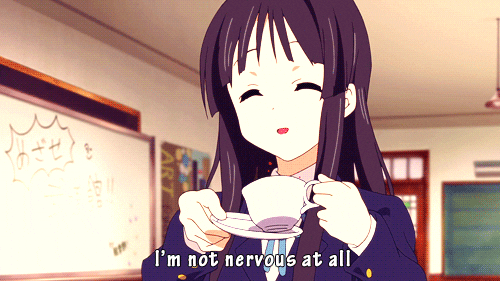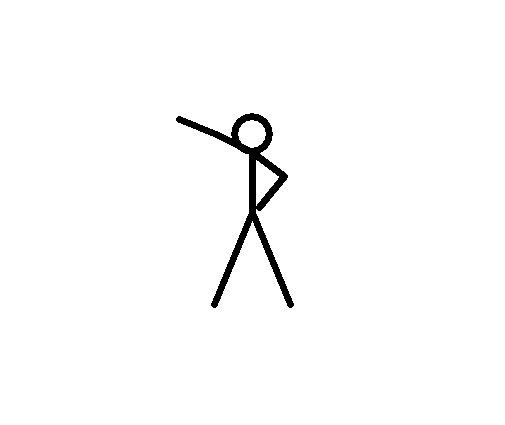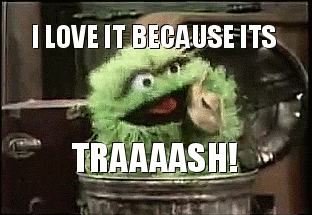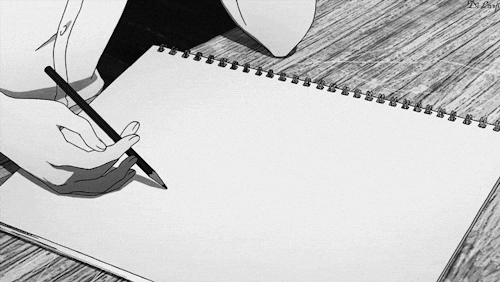The First Words Are the Hardest
You sit there, staring at your screen. The story-cask of your mind is filled to the brim with incredible ideas, yet the spigot just doesn’t want to turn. So you huff, and you grumble, and you stare at that blinking little text cursor as it taunts you with its impatient blinkiness. What the heck do you know, cursor?! You’re just a line! Lines don’t have feelings!
Yeah, we’ve all been there.
Hell, I’ve been there for the last hour, trying to come up with how to start this very article. And I was there for weeks before that as I struggled with what could/would/should be the first article for this publication. The Pen Doesn’t Have to Be Red is important to me, and I’m unpracticed at writing this style of advice article. It took the impending potential loss of my most successful platform to finally give me the kick in the pants I needed.
If you care about something, it’s easy to freeze up. Better to keep a project in this odd limbo-state, where it’s neither succeeded nor failed, right? It’s safer. Much less scary, less daunting. We resign these projects to be a tickle in the back of our mind, a passing thought that years down the line we can recall with a wistful chuckle and a “boy, that would’ve been neat.”
That just sounds sad.
So how the heck do we get past it? It’s not like some big societal change is going to come along and give us a boost for every single project.
Well here’s the really annoying thing: It’s a lot easier than we think.
Here are a couple items to keep in mind whenever we sit down to work on a new project, be it a story or an article or a novel. Maybe they’ll work for you, maybe you need something else. Everyone’s mind works differently. But hey, it’s worth a shot, right?
“Starting” and “the beginning” are two different things.
We writers put a lot of importance on beginnings—and understandably so. It’s the first taste readers get of our style, our story, our characters. This could be the deciding factor in whether they keep reading.
Which is why it’s so easy to lose ourselves under an avalanche of what-if’s.
What if it’s not engaging enough?
What if I haven’t actually found my voice yet?
What if it’s not a good story after all?
What if I’m just fooling myself and nobody’s ever going to want to read it?
Oh god, what am I doing here?!
Yeah. Yikes.
Here’s the thing you, I, and the gremlins in our brains need to remember: It’s not the beginning of the project, you’re just starting it.
“But Alex, those are synonyms—”
Shut up, let me explain.
“But—”
Shush, hypothetical reader!
I could give you a whole spiel about the words themselves, some intricate meaning behind them, maybe find some ancient original meaning that actually differentiates the two. Or I could get all poetic with it, really tap into my pretentious-artist mode, and discuss what the two actually mean to those of us with creative drive.
But nah. Despite my obviously long-winded nature, sometimes putting it plainly is best:
You can start wherever the heck you want. There is no rule that says you have to start at the beginning of the story and go straight through to the end.
Got a cool scene that’s been nagging at you? Start there. Got some romantic description of the main love interest’s eyes that you can’t wait to get on the page? Write it; who needs context? Excited about the big, climactic showdown between protagonist and antagonist and want to just get to writing that already? I’ve only got one thing to say to that:
Y’know what’s even crazier? You don’t even have to start with the story part of your story.
Write out how your magic system works. Describe the city in which the story takes place. Break down the governmental aspects that your protagonist will have to deal with. Lay out a detailed description of what your protagonist looks like. That’s all part of the story, and you’ll never know when you’ll need those exact descriptions, and when you do—oh, wow, look at that! They’re already done!
Point is, you can start writing your story wherever you want. The only important thing is that you start.
Lean into the bad.
If you’re anything like me, one of the most frustrating things is when the words on the page aren’t playing out like they do in your head. In your mind you have engaging internalization, compelling and emotional dialogue, clear and exciting actions, and vivid images of your characters and everything around them.
But then all that gets on the page is a stick figure named Carl floating in a white void, spouting sentences that even the CW would reject as “too on-the-nose.”
This is how it goes. And you know it. And despite the logical side of your brain trying to remind you that you’ll just make it good later, the brain-gremlins are hard at work making you ill-equipped to handle that kind of disheartenment.
Thus, you freeze, and that little text cursor gets an hour and a half of taunts in. (Blinking little jerk. Hate that guy.)
So maybe try a different tactic. Don’t dread the bad: embrace it.
Write all the things you want to happen in this scene, and forget how you want them to happen. A fellow editor I follow on social media (I forget exactly who) once likened it to writing in the same way you would tell your friends about something that happened to you.
I’m better at showing things rather than telling, so here’s an example.
If what you have in your head is something like this:
Damian stepped toward her, and Adriana’s breath hitched. A smile graced her lips as his hand cradled her cheek; it was so warm, so soft, so comforting. In that moment she realized: she hadn’t lived until this day. This moment. Her heart hadn’t beaten until it beat for him. And with this epiphany coursing through her, she reached for his belt and
Whoa! Ahem. Sorry. Better stop it there.
Anyway. If that’s basically the scene in your head, then the first attempt to write it might look something like this:
Damian got closer and Adriana was like oof. He touches her face and she’s into it. Suddenly she gets that she’s not just hot for him, but she’s like super in love. Like ‘my life starts now’ kind of in love. And that’s when they DO IT.
Now, although I’m sure you and I would love to read an entire book done this way because it’d be hilarious, readers at large wouldn’t exactly consider that a well-written exchange.
But that doesn’t matter. Being good doesn’t matter in the first draft—we all know that. All that matters is that you got something on the dang page! You did it! You wrote! Story happened!
Embrace the bad, and it can’t stop you from making words happen.
One word can roll the ball.
This mindset is all about turning that mountain into a molehill. You want to diminish the daunting task of telling this story and sharing it with the world. You have a whole dang novel stretched out before you! It’s huge! It’s so much work! How could you possibly begin to tackle that?!
Except you don’t have a whole novel stretched out before you. No grand conflicts, no sweeping romances, no dire treachery, no cozy little uh-ohs. Not even characters.
All you have ahead of you are words. Words are tiny. Even antidisestablishmentarianism is small, comparatively speaking. And what’s more, you can group the words into as many as you like. They are yours to manage at your leisure.
Start out with one word. That’s all it takes. Much more manageable than a big ol’ novel, am I right? Just a single word. Then the next one. Then another after that. Keep on like this, and pretty soon you’ll have a sentence. And the process repeats.
Once you’re on to that next sentence, don’t look back. That previous sentence? It’s gone for now. It’s in storage. You can come back to it later. Right now, you’re just concentrating on the next word. Then the next. Then the next. Then once you move on to another sentence, this one can go into storage too. You don’t need them right now. You just need that next word.
Now maybe you’re someone for whom one word is small potatoes. You can’t see the world in that narrow of terms. So you decide to work one sentence at a time. Or one paragraph. There really is no wrong answer, as long as you keep your eyes on what’s next. Keep focused on what’s right in front of you, so you don’t get overwhelmed by what’s beyond.
Stories and novels may be daunting, but words and sentences are nothing to be afraid of.
There are hundreds of tiny ways to get over that start-of-project freeze. These are just a few of them. My hope for this is two-fold: that these will have helped someone somewhere get started on their writing, and that by writing these out I’ll finally be pressed to take my own dang advice.
Now if you’ll excuse me, I’m going to go start looking into good ways to end a nonfiction piece. Because clearly I need the help.
So with that in mind… *ahem* END OF POST. (See what I mean? Don’t worry, I’ll get better as I go.)






